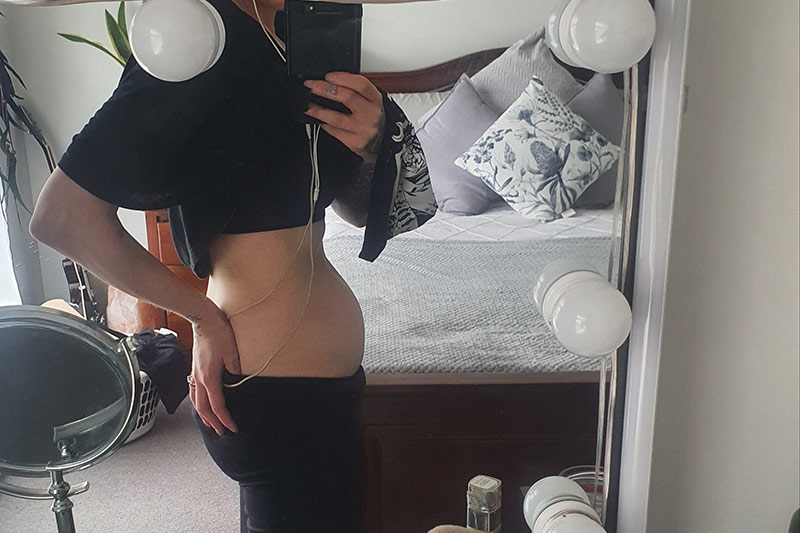Jess's journey with endometriosis began in her teenage years, with the onset of painful symptoms during her menstrual cycles. Initially confined to the week of her period, the pain escalated, leading her to doctors and even emergency departments.
After a while, the pain wasn’t just isolated to the week of Jess’s period, it started to occur in the weeks leading up to and after her period too. It was unbearable.
“It got the point when I had pain literally every day,” says Jess.
In 2022, Jess was diagnosed with endometriosis, a condition where cells that are similar to the ones that line the uterus start growing in other parts of the body.
Jess had lived with painful symptoms for 20 years before a laparoscopy (a surgical examination) confirmed the endometriosis. She had visited multiple doctors, desperate to find a reason and relief for the pain she was suffering. On those occasions, she was frequently dismissed by doctors who suggested she take over-the-counter painkillers to help control the pain. That never worked.
“Painkillers provided fleeting relief but they never got rid of the cause of my pain,” says Jess.
Various contraceptive pills proved ineffective for Jess so she stopped taking them.
“It came to the point where whenever I had the pain, I wouldn’t go to the hospital anymore, because they could never find anything.
“I started to believe that this was just in my head and I must have a low pain threshold,” says Jess.
“But I knew that wasn’t true because when I was 17, I had cancer and went through chemo and had to inject myself with shots to get my white blood cells up. Compared with chemo, endometriosis was more painful than cancer treatment for me”.
Endometriosis was more painful than cancer treatment.
Frustration and exhaustion pushed Jess to her breaking point, but a glimmer of hope emerged when she reached out to the endometriosis nurse at the Julia Argyrou Endometriosis Centre at Epworth.
"I felt so supported and listened to, and they came up with a plan. Having an endo nurse enabled me to feel in control and I felt hopeful for the first time in a very long time," she shares.
The physical, emotional and social toll of endometriosis
Endometriosis has taken its toll on Jess’s life in so many ways. It has affected her social life, her work and her fertility. She feels blessed to have a twelve-year-old daughter and despite the many physical impacts of endo, one of the most painful repercussions for Jess is isolation.
“It started off small, such as being invited to places and then saying, actually, I can’t come because I don’t feel well,” Jess says.
“Then the invitations stopped because people would say, Jess won’t come because she’s always unwell. I don’t have many friends and it’s very isolating. it’s even difficult to make plans with my daughter as I don’t know how I am going to be feeling.”
“It feels like you’re letting everyone down.”
Jess’s message for Endometriosis Awareness Month
This Endometriosis Awareness Month, Jess wants people to understand that despite appearing well, people with endo can be suffering.
“You can look fine on the outside, and people will often say you don’t look sick.’” Jess says.
“But you know what? I can put a whole face of makeup on and do my hair, but I can still feel like absolute garbage inside. I can feel like I’m carrying a bowling ball in my pelvis,” she says.
As Jess navigates the complexities of her daily life, her hope lies in ongoing research that could provide answers and, ideally, a cure. She urges others not to give up on those with endometriosis, advocating for continued invitations and understanding. "Keep treating us like human beings because we are – we want to contribute, we want to be a part of a society," Jess says.
"Sometimes going out is not in the cards for us that day. But, tomorrow, I may feel better."
05 March 2024

